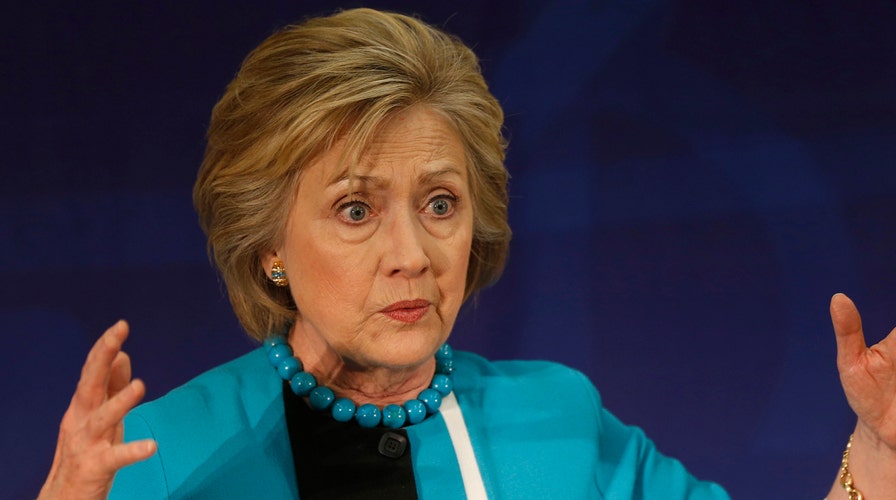Jarrett: Clinton's intent irrelevant to email investigation
Fox News anchor and attorney weighs in
Fox News has confirmed that the FBI has interviewed Huma Abedin, top aide to Hillary Clinton, as part of its investigation into Clinton’s use of a private email and whether classified information was willfully transmitted on her unsecured network. The FBI may also have interviewed other current and former Clinton staffers. This suggests the case may be approaching a conclusion. Clinton, herself, could be interviewed very soon.
Abedin Is a Key Witness
Abedin is a valued source of information because she apparently used an email on Clinton’s private system. She may have voiced concerns about whether the server was violating the law or, equally important, discussed how the law could be circumvented.
She and other staffers were surely questioned about the 2,200 classified communications contained on the server, including the 22 documents that were “top secret”. How did they end up on the unauthorized system? Did the aides have clearance to read them? Didn’t they know they were classified? Were classified markings erased? Who decided to delete thousands of emails which were government property? Who ordered the server to be “wiped clean”? Depending on the answers to these crucial questions, the aides could find themselves in legal jeopardy. So could Hillary Clinton.
Clinton’s Intent Is Irrelevant
Unnamed sources close to the investigation are reported to have said that the FBI has found no evidence to prove Clinton intended to violate the law. That sounds important, but it is not. The operative legal issue is not whether she intended to break the law, but whether she knowingly and intentionally stored classified information on her unauthorized server. Here is the specific law:
“Whoever… knowingly removes (classified) documents or materials without authority and with the intent to retain such documents or materials at an unauthorized location shall be fined under this title or imprisoned for not more than one year, or both.” (18 U.S.C., section 1924)
The statute says nothing about an intent to violate the law. It is an important distinction. Clearly, Clinton intended to create a private server for use as her exclusive means of conducting official business as Secretary of State. She also knew it was not authorized because she never sought authorization from the relevant agencies. At the same time, she knew her unauthorized server would collect, retain and transmit classified documents during her four year term and intended it to do so.
This would appear to violate the language of the statute. She can hardly claim she did not recognize classified material… because that would be arguing her own incompetence.
Ignorance of the Law
Is it possible for Clinton to argue that she did not know she was breaking the law? She can try, but in a court of law it is no defense. Ignorance of the law is never an excuse. Otherwise, everyone accused of a crime would play dumb. “Gee, I didn’t know my actions were a crime!”
Moreover, Clinton knew the law because she was specifically instructed on the law when she took office. She received a “national security indoctrination” –a tutorial on the law of classified materials. Thereafter, she signed a sworn “non-disclosure agreement” promising never to convey classified material to an unauthorized person or place.
In that same agreement, Clinton was also warned that classified material can be either marked or unmarked. The content dictates its classification, not the markings. So, her previous claims that nothing was marked classified is not a defense. This is especially true since Clinton reportedly authored 104 of the classified emails herself. Surely, she knew what she was writing.
Gross Negligence
President Obama recently called Clinton’s handling of the classified emails “careless”, but not intentional, as if that makes it okay. However, carelessness is sufficient to be convicted of a crime. The following statute specifically addresses this issue:
“Whoever… through gross negligence permits (classified information) to be removed from its proper place of custody… shall be fined under this title or imprisoned not more than ten years, or both.” (18 U.S.C., section 793-f)
In plain language, gross negligence is the standard, not intent. Carelessness or recklessness are synonymous with gross negligence. Thus, by implying that Clinton did nothing illegal because she was merely “careless”, President Obama is either legally mistaken or deliberately communicating a falsehood.
If the president, a trained lawyer, thought he was exculpating Clinton… he was, in truth, implicating her in a violation of the law.





















